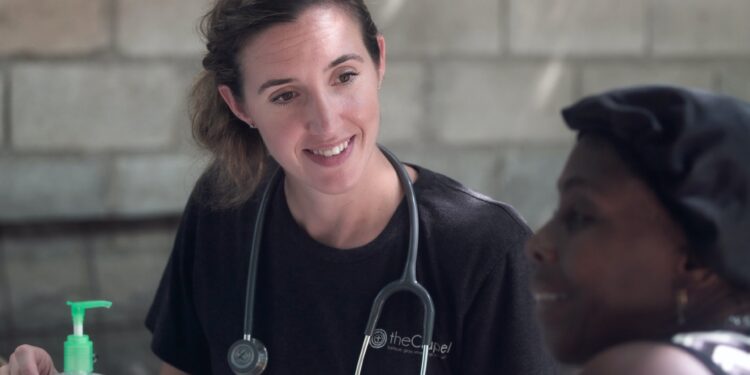Better health care for patients begins with humility – a term not often associated with medicine.
I witnessed displays of humility firsthand eight years ago, the night my son was born, in the way the doctor and doula worked together to deliver our baby.
Neither tried to assert dominance over the other. Instead, they openly communicated with each other, respected each other’s roles, trusted each other and worked as a team. And what was most meaningful to us – they included my wife on that team by actively listening to her and putting her needs at the forefront.
Together, the team’s professional humility helped create the most unforgettable moment of our lives: the birth of a healthy baby boy.
The patient as part of the team
Our experience with them made a significant impression on me because I’m a social scientist who studies how clinicians collaborate. Specifically, I explore how doctors, nurses and the entire health care team can better show professional humility to ensure better outcomes for patients and for health care workers as well.
Put simply, professional humility in the health care setting is when doctors, nurses, physician assistants, pharmacists, physical therapists, support staff – basically every health care provider – see each other as playing on the same team.
That means team members share the same goals, understand the limitations of their own profession, see the strengths offered by others and include the patient and their caregivers in decision-making.
That willingness to make the patient part of the team is key to professional humility. Instead of talking about the patient among themselves, the providers address the patient directly and actively listen. They openly admit when they don’t know the answer or if they were incorrect. And rather than talking down to the patient, they explain things calmly, using everyday language and avoiding arcane medical jargon.
The power of humility
A growing body of research demonstrates that clinicians’ humility positively affects patient satisfaction, health outcomes and overall care. Additionally, emerging evidence indicates that having humility is good for health care providers as well – serving as a protective factor against burnout and even clinical uncertainty.
But if humility is so beneficial, why isn’t there more of it in health care? And why is it not formally taught in medical, nursing and other health profession schools?
Most people have likely experienced or witnessed scenarios where clinicians exhibit the opposite of humility, such as when providers show open disrespect for each other or engage in power struggles, or when a patient feels ignored, rushed, dismissed or spoken to rudely. These are common examples of a lack of humility in health care.
But humility can be difficult to achieve in professional settings. In my experience, there are still assumptions by health care providers that displaying intellectual humility suggests a lack of knowledge and confidence, the opposite of what the health professions want to instill in their students.
Money concerns and turf battles
The lack of emphasis on humility in health care could also be due to pervasive, systemic issues nested deep within the industry itself. The very culture of today’s health care industry is heavily influenced by competition for patients and resources, battles over money and turf and infighting between and within departments. Even the years of professional training are riddled with competition for the best test scores, opportunities and recognition. These are hardly the kinds of backstories that lead people to suddenly embrace the relatively unexplored concept of practicing humility.
In fact, research shows that humility is not a sign of weakness or self-doubt. Instead, it reflects exceptional security and confidence. These are essential attributes for a patient-centered, team-oriented health care workforce.
Here’s another example of professional humility that I experienced when my son was about 6. He was spinning around in my office chair while I was close by in a meeting. He slipped off and hit his head on the corner of my desk, causing quite a gash.
Luckily, my meeting was with a group of doctors, nurses and physician assistants. I had a team of clinicians right there to assess my son for any need of stitches. Gently talking to him, disregarding professional “rank” by collectively assessing the wound, openly seeking their colleagues’ opinions and engaging me directly about possible next steps – all while jokingly noting the serendipity of the situation – clearly reflected professional humility.
Researchers are just starting to scratch the surface of understanding precisely how professional humility leads to teamwork and more effective care. But the early research suggests that it’s an essential ingredient.
If you do find yourself or a loved one in the hospital, you may be confronted with hard decisions and frightening uncertainties about the future. When that happens, you will no doubt want a health care team that is harmonious, communicative and connected. That sense of calm in the chaos provides patients and family with reassurance, hope and healing.
Barret Michalec, Research Associate Professor of Nursing and Health Innovation, Arizona State University
This article is republished from The Conversation under a Creative Commons license. Read the original article.















